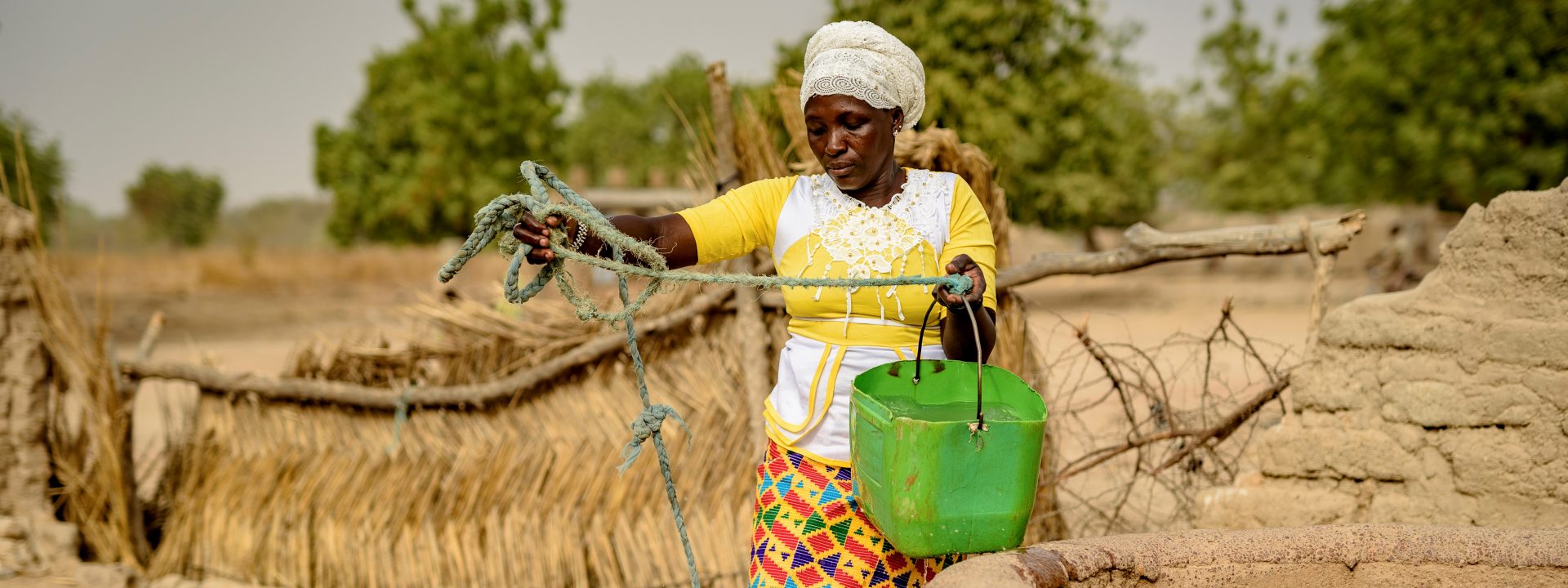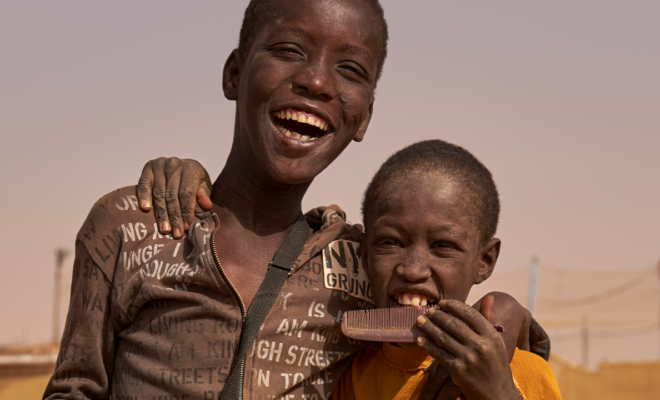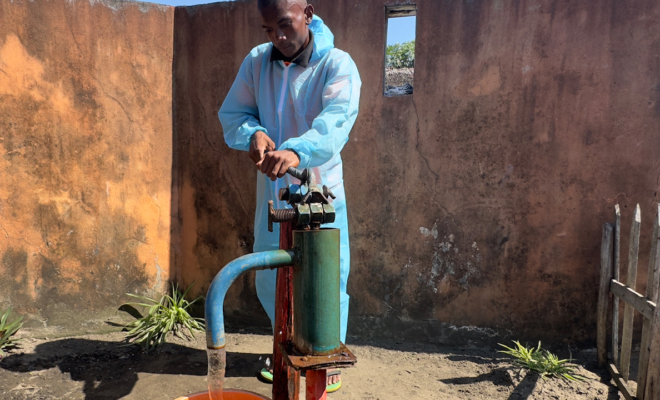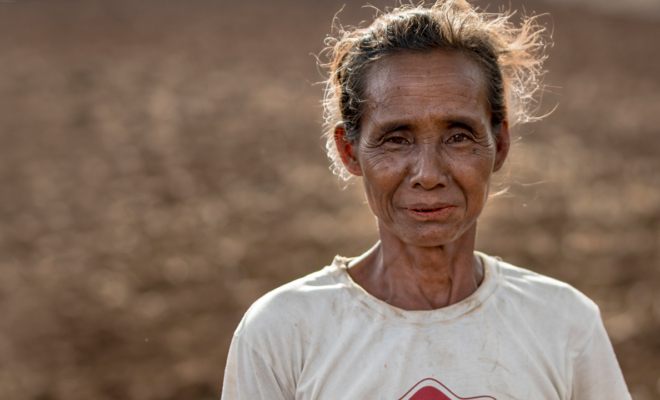Burkina Faso is one of the poorest countries in the world. Its rural areas have been struggling for decades to survive amidst droughts, epidemics due to lack of hygiene and lack of access to water and sanitation. Terrorist violence has added to these calamities in recent years, devastating the degraded northern part of the country, which is now considering how to fight Covid-19. The small country is a good example of the human drama of the Sahel, the large 5,400 km strip of land that crosses Africa from west to east, from the Atlantic Ocean to the Red Sea; a vast extension of semi-desert territory that many international media call the “hunger belt”.
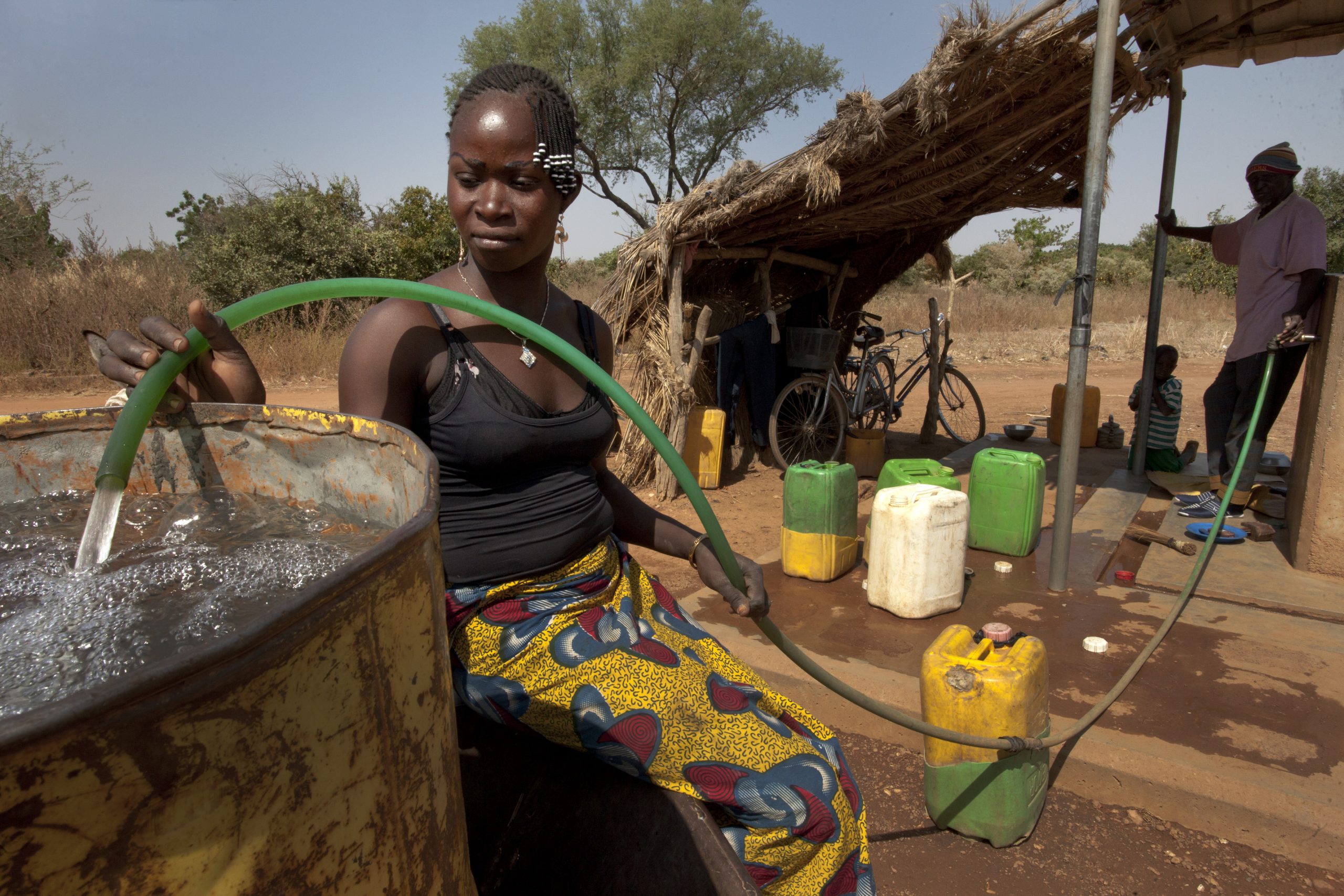
Collecting clean water in Burkina Faso. © Dominic Chavez / World Bank
North and south, two worlds, a human tragedy
The little more than 15,000 inhabitants of the small town of Dori, in northeast Burkina Faso, had never before been under so much pressure. The capital of the parched Sahel region, close to the border of Niger, has been sheltering people from rural areas displaced by the brutal violence of terrorist groups for more than four years. In recent weeks, the attacks have hit its inhabitants hard, as they have gone from being welcoming to becoming migrants. According to reports from the UN Refugee Agency (UNHCR) and Médecins Sans Frontières (MSF), thousands of city dwellers are fleeing in fear of violence from armed groups, such as the Islamic State, which break into the city killing anyone who opposes their ideas, raping and enslaving women and closing schools for spreading ideas they consider heresy. The coronavirus pandemic is seen as a secondary threat that cannot be fought due to the lack of resources or safety.
About 400 km southwest of Dori we find the community of Leo, south of the Center-Western Region. It is a more fertile and humid region than Dori’s Sahel. Terrorist violence does not reach there, but migratory pressure, originated by droughts and soil degradation in northern areas, has been unbalancing a society for years that is struggling to get by with very poor infrastructures of access to water and sanitation.
The Center-Western Region, where Leo is located, has a rate of access to sanitation infrastructure of only 26% and open defecation reaches 68% of the population. The percentage of those who do not have access to a safe water source is 18%. This results in a high persistence of waterborne diseases among the youngest, with an endemic prevalence of diarrhea that reaches 20.7% in children below the age of 5.
The We Are Water Foundation, together with UNICEF, started a project in 2017 in 19 communities in Leo to improve the capacities and resilience of the population in the access to water and sanitation, as well as to improve their living conditions and health in general. The project promotes the construction of sanitation facilities by means of the CLTS approach (Community-Led Total Sanitation) and lends continuity to a previous project that provided sanitation to 2,140 families in 30 communities. These projects have a strong impact on the main hygiene problem in Burkina Faso and almost all countries of the Sahel and Sub-Saharan Africa; a problem that is dramatically highlighted by the Covid-19 pandemic.
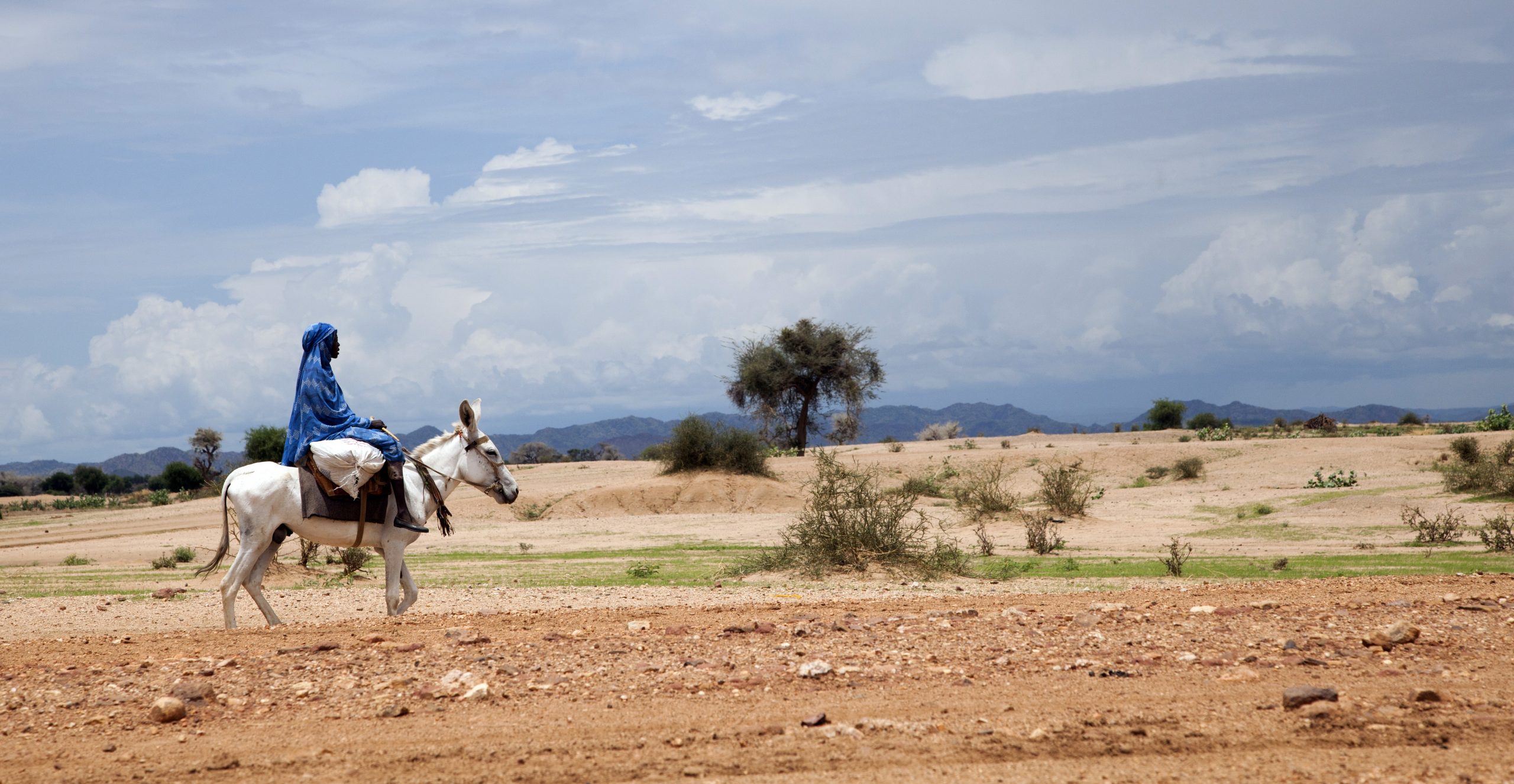
A woman displaced from Shangil Tobaya close to Tawila in the Sudanese state of North Darfur. © UN Photo / Albert Gonzalez Farran
Poor governance in one of the most climatically challenging areas
The nickname “hunger belt”, used to identify the Sahel, originated in the devastating drought of 1984-1985. This climate crisis revealed to the world the bad practices carried out in the area until then. The short-term vision of governments and communities, which sought to maximize economic returns in the shortest possible time, had led to severe soil degradation: during rainy periods, both governments and farmers themselves had increased grazing and farming, which had caused systematic overexploitation of the land far beyond its average capacity to provide water and pasture.
This alternation of periods of relative abundance of water has made north-south migratory movements and the economic and social instability of the countries that share the Sahel strip chronic. In recent decades, land degradation in Burkina Faso’s semi-desert north and central plateau has historically encouraged large-scale human movements to the more fertile areas of the south. Currently, while the government is rehabilitating many of the drier northern provinces through soil and water reclamation projects, the southern provinces, such as Leo, have been neglected in their most basic needs for access to water and land management.
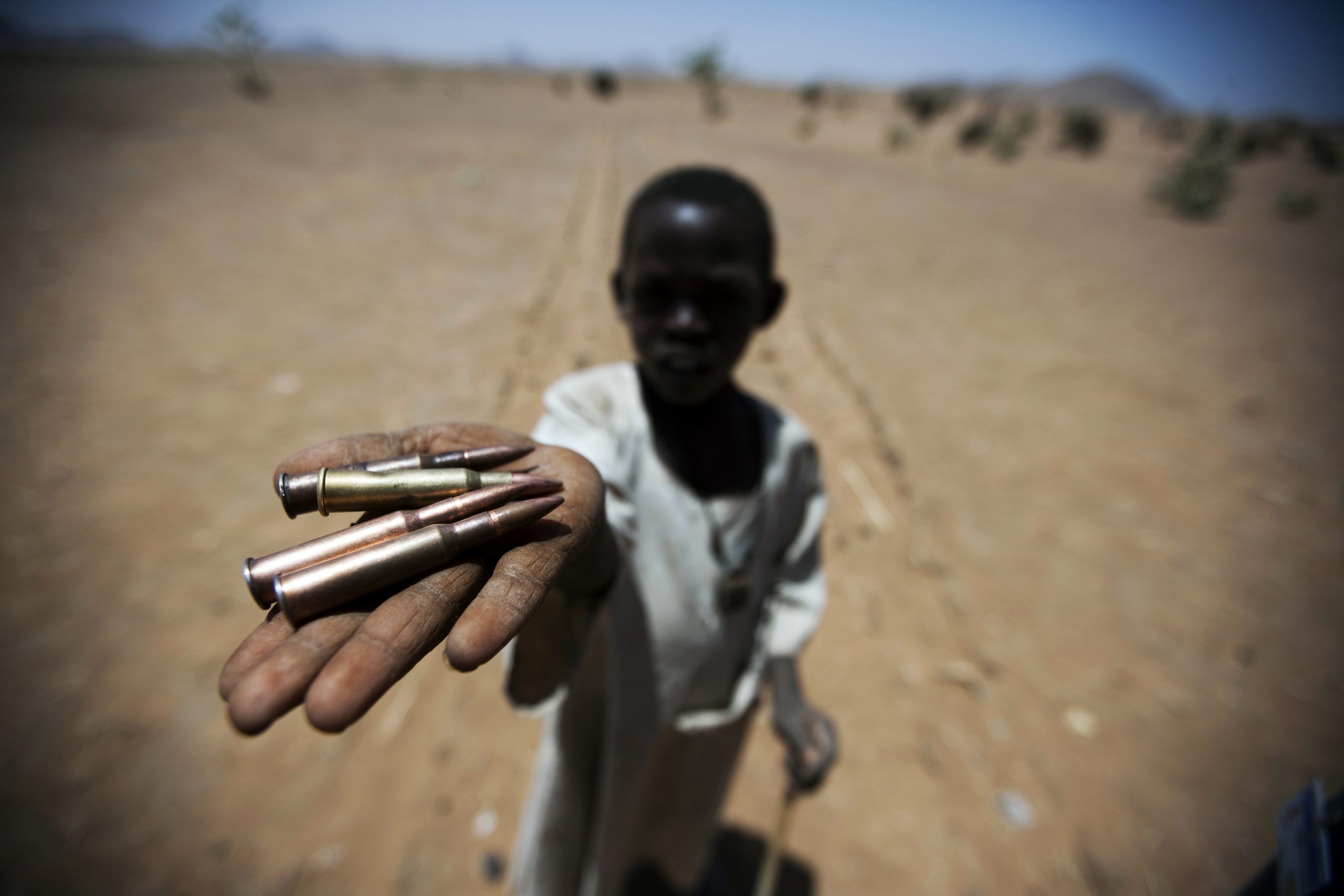
Throughout the Sahel, the tragedy of terrorism has pushed the number of those fleeing violence to three million. © UN Photo / Albert Gonzalez Farran.
The uncertainty of the rainy season
The coronavirus pandemic has come at the most uncertain climatic time. Early summer is a distressing period for the agricultural and shepherding population: the profits and food harvested in the previous crop have been or are about to be exhausted and the next crop has not yet been harvested. Uncertainty over the rainy season, which runs from June to September, has increased in recent years as extreme storms have intensified and worsened erosion, leaving less useful water.
The natives call this critical period of time the French term soudoure. It is a period during which the population reduces its food intake and acute malnutrition soars among children who become very vulnerable to endemics due to the poor state of water and lack of hygiene. FAO warns that this year some 5.5 million people are already suffering from the shortage crisis and 19 million people are at risk of food insecurity in the area.
To meet this huge challenge, the World Bank estimated last January, before the pandemic was declared, that an investment of about one billion euros was needed in the Sahel.
Ending terrorism, a priority
But it is the tragedy of terrorism, which affects a large number of countries in the Sahel, that is the priority objective, since it adds to the terrible humanitarian cost the impossibility of maintaining any program of economic and social development, and of attending to any health emergency effectively. In the case of Burkina Faso, the northeast regions, where Dori is located, are the most conflictive. They are located in the so-called “three-frontier zone” – Mali, Niger and Burkina Faso -, where the fight against the jihadist group Islamic State, which is carried out by the army with the support of France, is not likely to be resolved in the short term.
According to UNHCR, 880,000 people have been displaced by violence in Burkina Faso alone up to April this year. Throughout the Sahel, groups such as Al Shabaab, Boko Haram, the Support Group for Islam and Muslims (JNIM), the Islamic State in the Greater Sahara (ISGS) and others have pushed the number of those fleeing violence to three million.
Burkina Faso means “homeland of men of integrity”. The integrity of its inhabitants has helped them to withstand all sorts of calamities, albeit at a high humanitarian cost. It is a country that dramatically symbolizes the problems of one of the poorest and most vulnerable regions of the planet. The world needs their integrity, which will not abandon them, to reach international society. Economic and political support are needed, as well as a great deal of international social awareness to put an end to an unacceptable human tragedy.


